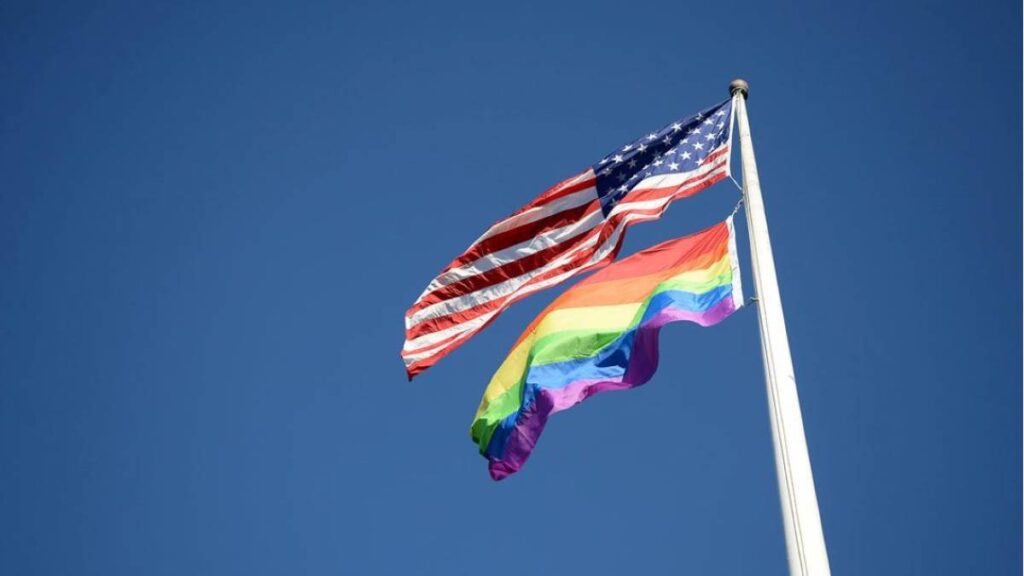
In a statement on Tuesday about a case unrelated to same-sex marriage, U.S. Supreme Court Justice Samuel Alito expressed his concern. He highlighted the impact of legalizing same-sex marriage on “society.”
The underlying case involved an employment discrimination lawsuit filed by a lesbian prison guard, which she won. On Tuesday, the U.S. Supreme Court declined to hear an appeal filed by the Missouri Department of Corrections over part of the jury selection process.
The outspoken conservative justice begrudgingly agreed with the court denying the petition for writ of certiorari, citing technical grounds that complicated the case. However, he took the opportunity to offer his views on how LGBTQ rights intersect with religious beliefs.
Alito wrote, offering a generalized summary of the case, “In this case, the court below reasoned that a person who still holds traditional religious views on questions of sexual morality is presumptively unfit to serve on a jury in a case involving a party who is a lesbian.”
ALSO READ: Multiple Transgender Deaths Spark Outrage Among LGBTQ Community in Mexico
Alito argues that the case concludes that he accurately foresaw the anti-religious consequences of the landmark Supreme Court ruling legalizing same-sex marriage.
“That holding exemplifies the danger that I anticipated in Obergefell v. Hodges, namely, that Americans who do not hide their adherence to traditional religious beliefs about homosexual conduct will be ‘labeled as bigots and treated as such’ by the government,” his Tuesday statement reads. “The opinion of the Court in that case made it clear that the decision should not be used in that way, but I am afraid that this admonition is not being heeded by our society.”
Jean Finney won at both the district and appellate court levels in Missouri. She proved her employers created “a hostile work environment” and discriminated against her “on the basis of sex.”
POLL—Should the Government Increase Taxes on the Wealthy To Reduce Economic Inequality?
One of the central issues in the case was Finney’s sexual orientation as a lesbian. Therefore, her counsel posed questions to potential jurors regarding whether their religious upbringing condemned homosexuality as a “sin.”
Alito complains that the questions posed by Finney’s attorney merged two distinct issues: whether prospective jurors believed homosexual conduct is sinful and whether they believed gays and lesbians should be denied legal rights enjoyed by others.
Still, the questions were allowed and asked.
ALSO READ: Montana School Sparks Controversy for Pulling Two Students From a Lesbian Teacher’s Class
“The trial court, sua sponte, raised striking for cause certain jurors who had answered that homosexuality was a sin or otherwise expressed bias against homosexuals,” Finney’s reply brief explains.
Following the judge’s lead, Finney’s counsel moved to strike three jurors. The judge explained the decision as erring “on the side of caution” and hit the jurors. Additionally, the judge noted in dicta that none of the Christians had actually expressed bias against Finney. In fact, they had indicated the opposite. Regardless, the court observed there were sufficient jurors available.
After Finney won, the Department of Corrections moved for a new trial. The motion was denied. On appeal, the government claimed the three jurors “were improperly struck based on their religion.”
You Might Also Like:
California Christian Teacher Claims Gender Policy Forced Her to Lie in Suit Against Newsom
FBI Investigates Suspicious Letter With White Powder Sent to Speaker Johnson’s Church
Authorities Discover Bodies of Tennessee Deputy, Woman he Arrested in River
Families of Native American Victims Lament the Lack of Information on Solved Cases
